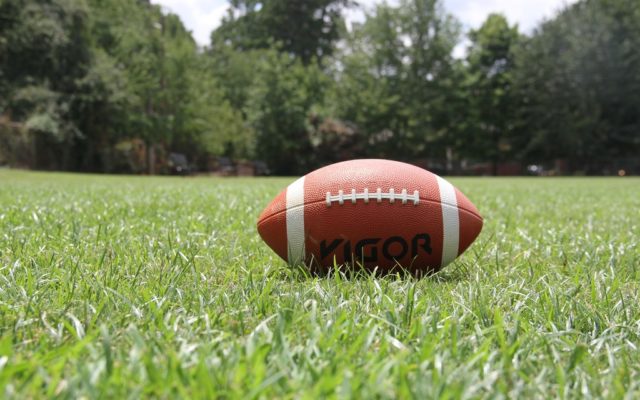
MPA committee opts not to pursue spring football season
By Ernie Clark, Bangor Daily News Staff
The football committee of the Maine Principals’ Association voted unanimously Jan. 28 not to proceed with plans for a proposed spring high school football season this year.
That season, which had been considered for June and July after the traditional spring sports offerings, was being pursued in an effort to replace the 2020 campaign that was lost due to the COVID-19 pandemic.
However, because tackle football was considered a higher-risk sport by the state’s community sports guidelines created in response to the pandemic, it was cancelled last fall and replaced by 7-on-7 touch/flag football.
Tackle football remains a higher-risk sport and any proposed spring season would be dependent on that status being downgraded to moderate or low risk, said Hampden Academy Athletic Administrator Fred Lower, chair of the MPA football committee.
“As long as that [higher-risk status] is in place, tackle football is not happening in any form,” Lower said. “We weren’t there to make a decision because the decision has already been made. Football’s not being offered.
“Then the conversation really shifted to if numbers change in a positive way, things start to loosen and that [status] is modified, what’s going to be the position of the football committee? Then we went into the discussion of possibly offering something in the late spring and early summer.”
Lower and committee liaison Dan O’Connell, athletic administrator and head football coach at John Bapst Memorial High School in Bangor, said numerous other topics were discussed during the committee meeting.
That virtual gathering surpassed three hours as the group considered a variety of input, including a survey developed by the Maine Football Coaches Association and guidance from the National Federation of State High School Associations’ sports medicine advisory committee — of which O’Connell is a member.
The overriding issue was the MPA’s determination to provide a full, traditional spring sports season, if possible, this year because that season was wiped out entirely in 2020 after COVID-19 arrived in the United States.
“As we started to process it all, the thing that was up front for us was preserving the possibility of a normal spring sports season and not adjusting that at all,” Lower said. “This is something the MPA has stressed, and we agree with it.
“Those kids lost everything last spring and had no chance to practice, play or do anything, so that was not an option to disrupt the spring sports season the way it’s proposed,” he said.
Another issue involved a determination not to put athletes who play multiple sports in conflict between football and other sports.
Plans for a June-July football season would have required preseason in that sport to begin no later than mid-May, which is at the heart of the typical spring sports season.
In addition, the end of the June-July football season would have coincided with traditional vacation-time sports activities including summer basketball and soccer and American Legion baseball.
“Looking at the big picture, it impacted way too many programs and kids, and ultimately it came back to what’s best not for one group of kids but kids in general,” Lower said.
Other discussions involved insurance and liability concerns, athletic training and coaching coverage, and the effects of having a limited turnaround between the abbreviated spring season and a traditional fall campaign in a sport like tackle football.
“The list of variables is long but they’re all so important,” O’Connell said. “When you talk about all the factors, there was just a lot that went into it and it ended up being a very thorough, very informative and very lengthy conversation.”
O’Connell said the decision not to pursue the so-called “wedge” season this spring will enable the state’s football community to focus on preparing players who have not engaged in tackle football since 2019 for what they hope is a full season this fall.
“The one thing that was most consistent across the board was the idea that with anything we did during the spring or summer of 2021 we did not want to interrupt or adversely affect the fall of 2021,” he said. “Now that we’ve turned the page toward the fall 2021 season we have a lot of work to do because we have kids who haven’t played for more than a year who need to go through an acclimatization period that is maybe more extensive this summer.
“Things like the weight room, conditioning, and skill development become even more important, and as we get ready for what we hope is a ‘normal’ fall season we’ll have to really put in the work to make sure we’re ready.”
O’Connell and Lower said the MPA committee also hopes there may be some way outside the school-based framework to provide a culminating tackle-football opportunity for the graduating seniors if the pandemic abates. Nothing along those lines has been determined yet.
“The possibility of that makes me feel a little better, but for our game it’s heartbreaking to go through an [academic] year without a tackle football season,” O’Connell said. “That feeling does not subside. It didn’t subside when we had 7-on-7, although that was a great opportunity, and it won’t subside when we go through the rest of the year and we don’t have an opportunity for all of our players.
“But other sports seasons have faced that. The spring season faced that last year and they persevered, and we will, too.”